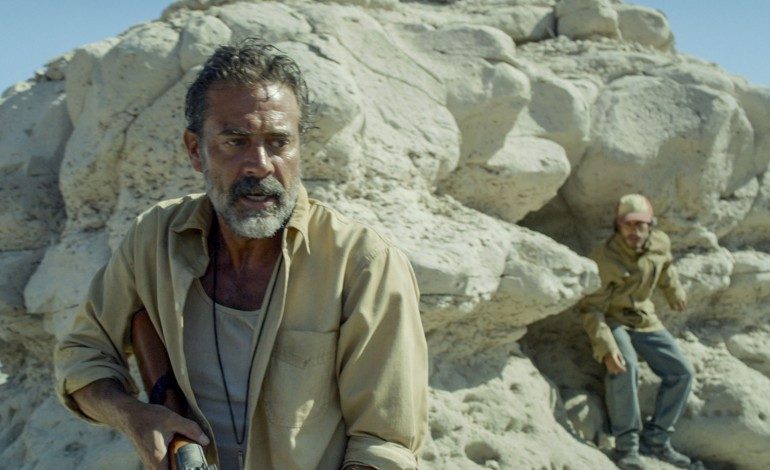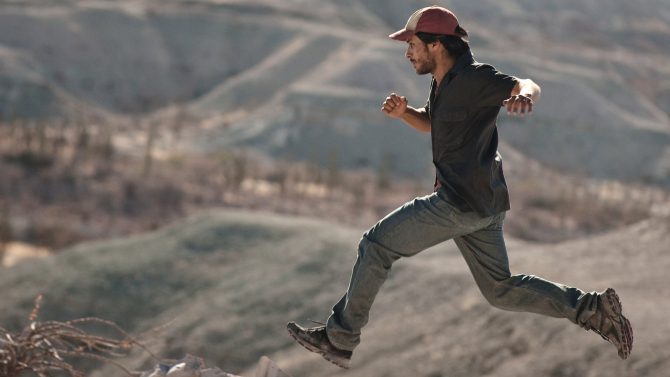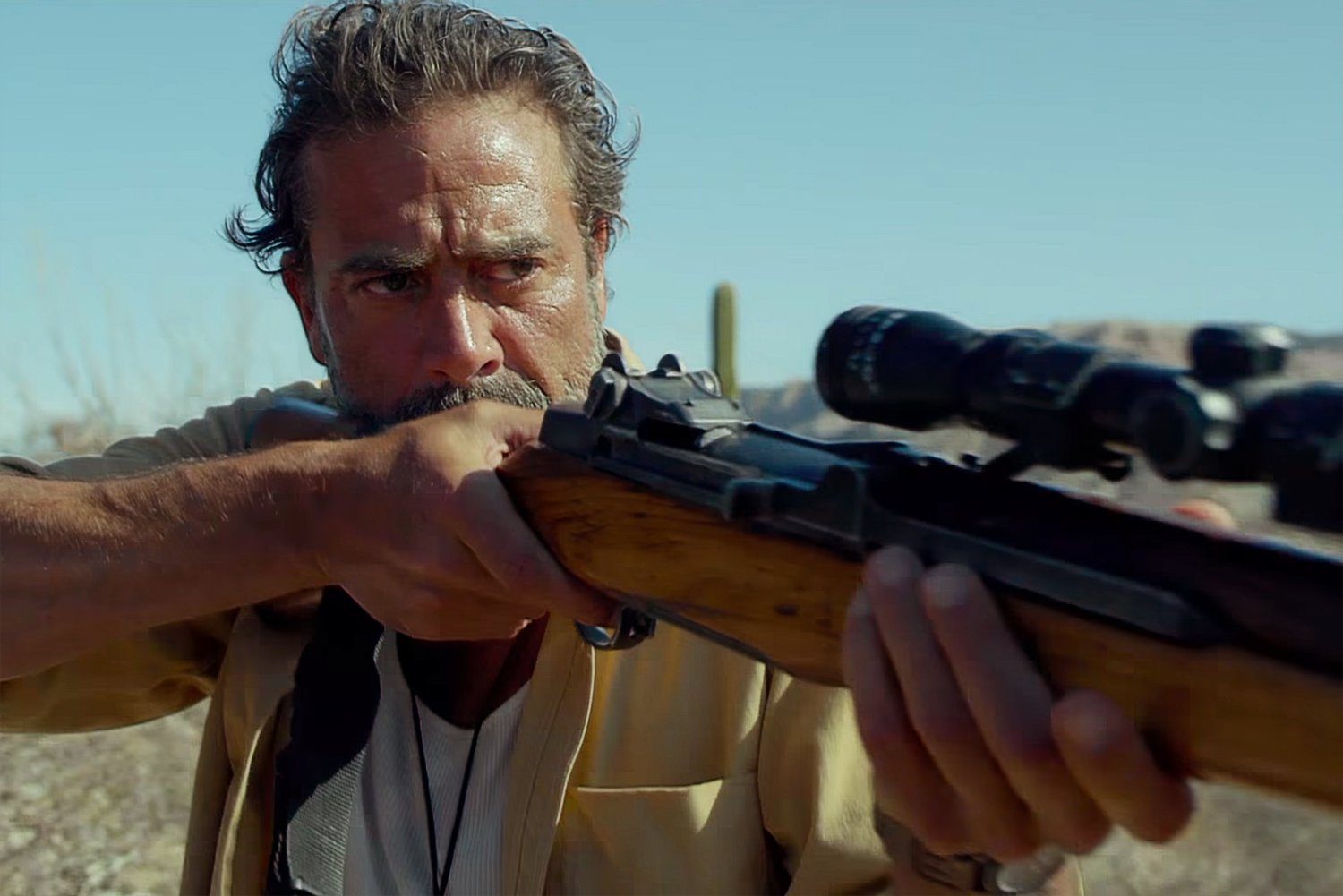

When Desierto was announced, director Jonás Cuarón could not have known his film would be released into one of the most politically and racially charged times in recent American history. Given the political landscape of the 2016 election, Cuarón’s cat and mouse thriller about hunted undocumented immigrants is going to play very firmly into one side’s camp, and likely that was never intended to the case. But, while it may not be particularly stirring or complex in its politics, Cuarón’s sophomore film is a gritty and efficient story of survival.
The premise is simple enough: a group of undocumented immigrants making their way across the border when they cross paths with Sam (Jeffrey Dean Morgan, Watchman) a homicidal game hunter who selects Mexicans as his prey. The herd is quickly thinned until there’s only two – Moises (Gael García Bernal, Amores Perros), a father trying to get back to his wife and child, and Aleda (Alondra Hidalgo), a young woman whose parents sent her to America for a safer life. The irony is not lost on her. The movie is, essentially, a version of The Most Dangerous Game played out across the sprawling desert landscape.
The script by Jonás Cuarón and Mateo Garcia is a lesson in economy. We learn only the barest essentials about our hunter and hunted. There’s no backstory to provide reasoning for Sam’s rage nor is their any pontificating about racial superiority in any certain terms. The effect is actually somewhat refreshing. Jeffrey Dean Morgan imbues his character with both tragic rage and surprising pathos, perhaps best embodied by his dog, Tracker – a product of Sam’s training and an animal of both the utmost loyalty and cruelty. The lack of dimension is less effective when it comes to the prey. Moises and Aleda have little connection to one another and even less connection to the audience. In a story this linear, it wouldn’t take much to create a sense of empathy for these characters, but they never come off as wholly realized people.
Perhaps the best-developed character in Desierto is the landscape itself. Beautifully photographed by Damian Garcia, the desert of Baja California stands in for the badlands of the Mexican border. The landscape takes on a haunting presence throughout the film, an indifference to the savagery committed in its name. Desierto also has some of the best sound design in recent memory. Footsteps scrape against rocks and impacts sound authentic. The whole film is very tactile – it has a roughness and unpredictability that keeps one unsettled from start to end. The economy of storytelling will seem to some a sign of mythic profundity, to others just a flat, undercooked narrative. The truth is somewhere in the middle.
Correlations can undoubtedly be made between Desierto and Gravity, another story of survival penned by Jonás and his father Alfonso Cuarón. But whereas Gravity was dripping with spiritual subtext, the deeper meaning is a bit more interpretive in Desierto. The film has a pseudo political bent that will undoubtedly be heightened by the current political climate. Cuarón touches on some interesting ideas about man’s relationship to land, but it’s a distant secondary concern. Desierto is far more concerned with being a solid B-movie thriller than as a dense political allegory.
Verdict: 3 out of 5
It’s currently impossible to separate Desierto from the political climate of the 2016 election, where immigration is a particularly hot button issue. That makes it difficult to view the film objectively, because when it comes to social commentary, Desierto is a blunt instrument. What Jonás Cuarón has created is a fierce and well-crafted, if overly linear, thriller. It’s a tense story of survival, anchored around a fantastically monstrous performance by Jeffrey Dean Morgan. Those looking for insightful political commentary will have to squint to find it. Those looking for bloody thrills will find them readily available.


